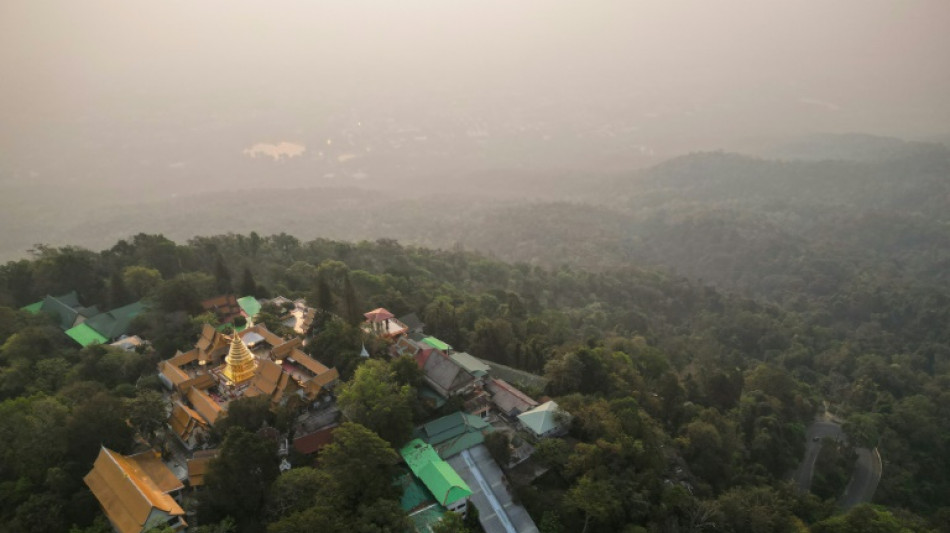Hazardous pollution levels in northern Thailand have left the historic city of Chiang Mai choking under thick smog, with locals worried about the impact on tourism -- and their health.
Smoke from forest fires and farmers burning crop stubble has suffocated the tourist city, with global air monitoring platform IQAir ranking it among the most polluted places in the world -- above regular hotspots such as Lahore and Delhi.
Residents have petitioned the government to act, with images and videos of the dense haze capturing public attention in the run-up to May's much-anticipated national election.
On Tuesday, daily life in Chiang Mai continued, even as records showed the level of the most dangerous PM2.5 particles -- so tiny they can enter the bloodstream -- wasa more than 30 times the World Health Organization's annual guideline, according to IQAir.
"It made me want to cry," said Kanchaya Boontan, 40, who runs CM Siam Travel, a tourism firm.
"This year is bad, normally pollution is not too long but the foreigners have seen the news," she added, adjusting her N95 mask.
Forced to close all four of her shops during the Covid-19 pandemic, Kanchaya was just starting to get back on her feet by working 12-hour shifts.
But last week, the Thai Hotel Association Northern Chapter warned that domestic tourists were cancelling their Songkran New Year holiday reservations due to pollution levels.
"Last week I got one customer only. This week, no one," Boontan said.
A few streets away by the ancient Tha Phae gate, 45-year-old orange juice vendor Aun tried to drum up business.
"It's affecting my life more and more every day, whether it be my health or the decline in the number of tourists," he said.
"Some days you can barely see the roads ahead, and it's not fog but it's smog."
- 'Everyone breathes' -
The pollution is mainly caused by farmers burning their fields, said Siwatt Pongpiachan, an atmospheric consultant with the National Astronomical Research Institute of Thailand.
A shifting global weather pattern and Chiang Mai's topography trapping pollution conspired to "drive PM 2.5 into the perfect storm this year", he said.
This year alone, nearly two million people in Thailand have needed hospital treatment for respiratory conditions caused by air pollution, according to the public health ministry.
Chiang Mai cardiologist Rungsrit Kanjanavanit told AFP that officials are not doing enough to tackle the pollution, worried about its impact on the country's vital tourist economy.
"We should care about our guests' health more -- that should be a priority."
The pollution impacts children and the elderly the most, Rungsrit added.
"For every 10 micrograms per mil increase in PM2.5, there is one year less of lifespan. You have to multiply it by the exposure range," he said.
"Everyone breathes, so the effect on the population is very high."
- 'Bright red sun' -
"The sun was really bright red because of the smoke in the sky, was quite, quite strange and very hazy," said British tourist Lucy Cooper.
"You couldn't see much further than a few fields away," she said.
The 34-year-old, travelling with her partner and two children, said she was advised not to come.
"It's not ideal. And we can't see a mountain, which is sad."
Chokchai Mongkolcho, visiting from northeastern Roi Et province, said the smog "hides the city’s beauty".
"It makes me wonder if I'll ever come back here again if there's still pollution like this."
B.Chakrabarti--BD
